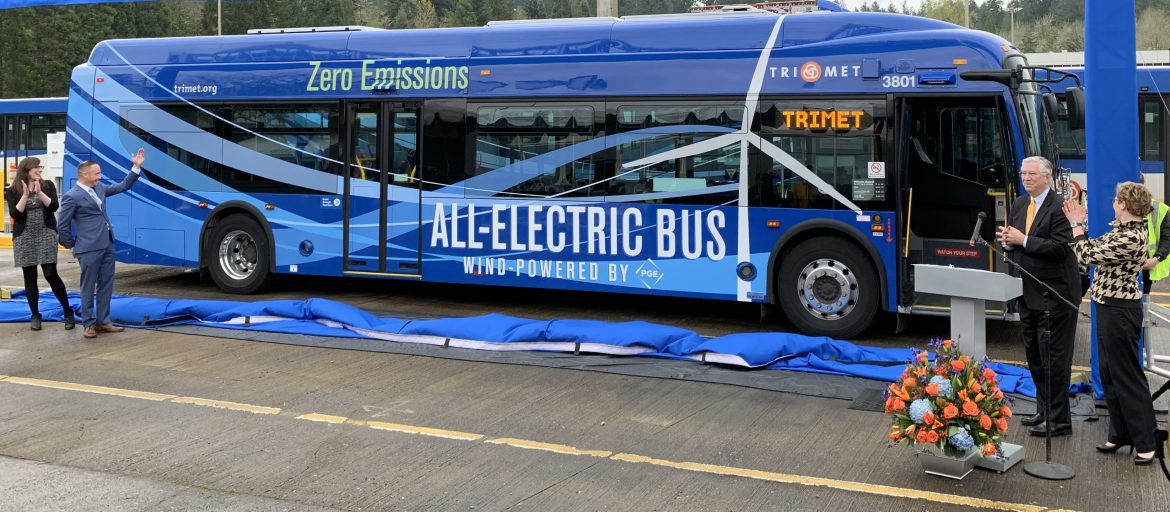TriMet, Portland’s public mass transit agency, made a groundbreaking announcement earlier this week when they revealed that they will be introducing five new electric buses said to be powered entirely by wind energy to their fleet.
Thanks to the aid of project partner Portland General Electric, TriMet will be the first transit agency in the United States to to have 100 percent wind powered electric buses in their service. The decision to transition towards more environmentally friendly alternatives led TriMet to commit to the goal of achieving a completely non-diesel bus fleet by 2040, with TriMet General Manager Doug Kelsey stating:
“As Oregon’s largest transit provider, TriMet is taking a significant step toward a greener future for our riders, the Portland metro area and the state. The transition from buses that run on diesel to those powered by clean energy sources – a move the transit industry itself has yet to take – will come with challenges, but we are putting a stake in the ground today and moving ahead.”
In order to make their plan a reality, TriMet will be utilizing the 40-foot version of the New Flyer Xcelsior Charge electric buses in their fleet, which Portland General Electric will power through their Clean Wind program. The cost of the five electric buses were funded through a $3.4 million federal grant and the agency’s partnership with Portland General Electric. According to TriMet, all five of the electric buses will run on the same line in Portland’s transit system, later explaining the rational behind their decision by stating:
“This route — which runs from 5 a.m. to 11 p.m., covers 13 miles and climbs nearly 700 feet in elevation — will allow us to test these buses under tough, real-world conditions. We’ll get a sense of overall performance, how these buses handle everyday wear-and-tear and what maintenance schedules should be.”
According to TriMet, their new electric buses will reduce greenhouse gas emissions by about 100-140 tons per year compared to a 40-foot diesel bus and about 75 tons per year compared to their own eight diesel-hybrid buses.
Source: TriMet
